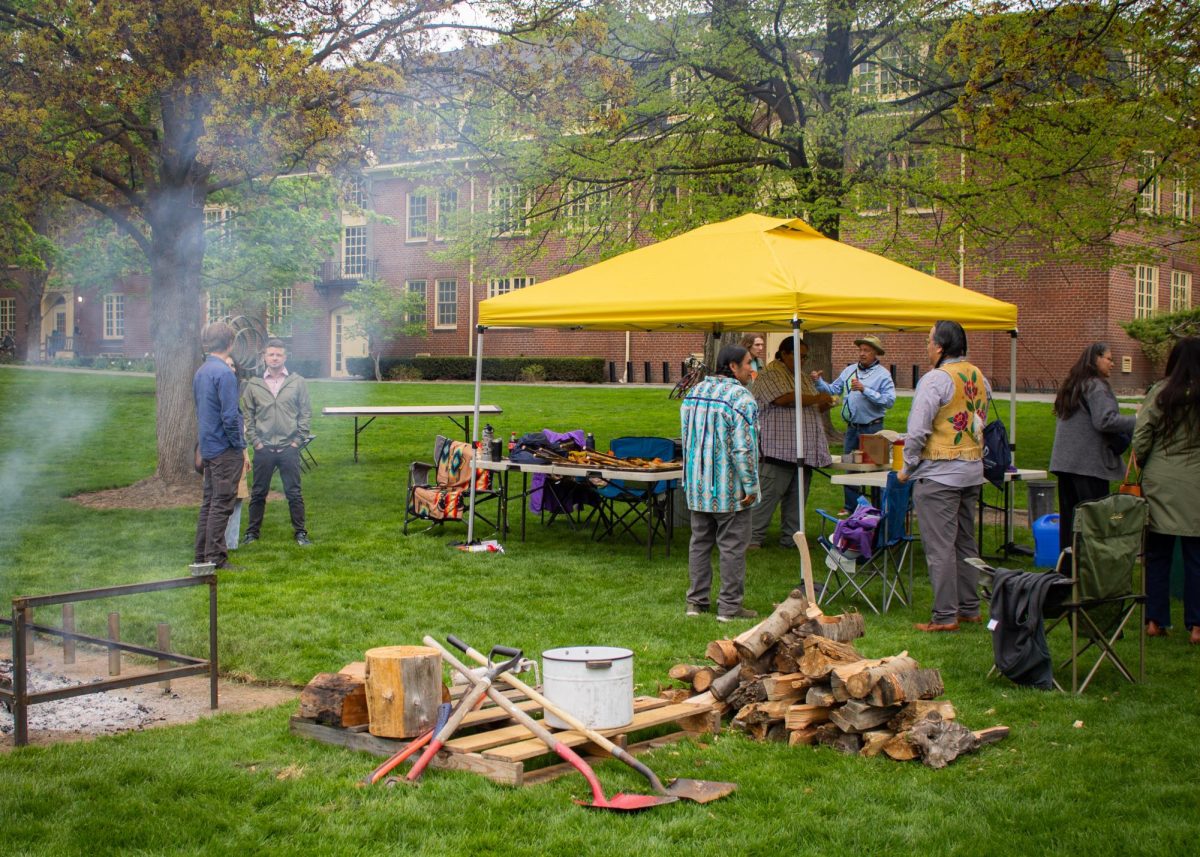
Most known for selecting campus concerts and funding student clubs, ASWC is emphasizing another role this year under the leadership of senior President Nadim Damluji: student advocacy.
Damluji believes there is an opportunity for student voices to be heard by the administration and faculty that ASWC has wasted in the past.
“I think they really are receptive to student input, we just haven’t been providing it. We’ve been waiting for them to come to us and ask us what we think, but my administration is much more proactive,” he said.
Shortly into this year’s first senate meeting Oct. 4, Damluji introduced senior Will Canine, who will serve in a newly-created position on the ASWC communications staff, Student Advocacy Coordinator. Canine’s first major accomplishment, advocating for the club ski team with Athletic Director Dean Snider, received previous coverage in The Pioneer.
“The ski team is kind of a template for how I see ASWC this year. The ski team knew they needed to get involved with the administration somehow but they didn’t think to come to ASWC. We had to go to them and say ‘hey, how can we help you?'” Damluji said. “We made students happy. We didn’t have to give them money, we didn’t have to bring their favorite band. We acted on their behalf . . . and ASWC could be really useful in this way.”
Canine will coordinate the two Town Hall Meetings ASWC plans to hold this year, which will bring to the student body’s attention issues that are being discussed by the college’s committees, many of which now have at least one student representative. The forums are scheduled for Oct. 22 and April 1.
“Hopefully we’ll hear as many opinions as possible and then craft some policy to take back to these committees,” said Damluji.
ASWC also is attempting to compile student concerns with daily tabling in Reid by the Student Affairs committee, a new initiative this year. The plan is to then raise student concerns at newly arranged monthly ASWC Executive Council dinners with President George Bridges and bi-monthly meetings between Dean of Students Chuck Cleveland and Damluji and senior Jordan Clark, ASWC vice president and chair of student affairs.
“We have this authority and voice that we haven’t been using in the past and that I’m encouraging everyone to use now to come up with more initiatives,” Damluji said.
Damluji recognizes that it is important to advocate for students in relating to the administration and the faculty, as both wield authority.
“If you talk to students and the faculty, they’ll say that the Board of Trustees & Memorial [the building that holds much of Whitman’s administration] has all the power, but if you talk to Memorial or the Board of Trustees they’ll say the faculty has all the power,” said Damluji.
Damluji and Clark now sit on the faculty policy committee. Damluji notes that he and Clark are equal members, with voting rights, not ex-officio like on other committees.
“I think this a key place where we could take initiative and present stuff on the table, which we are looking to do,” Damluji said. One item currently being discussed is whether students should be able to receive Whitman credit for internships.
Now that students are getting a voice, Damluji says they must use it more effectively.
He referenced a conversation with a faculty member who noted that while it is good to have students in meetings, they often seem unprepared.
“And realistically, it’s kind of true,” said Damluji. “We just show up and expect our voice to be heard when we haven’t really prepared for meetings. That’s a perception I want change.”
Damluji thinks one way for ASWC to be more prepared and potent is to write more Acts. For an act, an ASWC representative writes a resolution on an important issue to express what ASWC and the student body wants. The document then can be presented to the faculty and administration.
“That’s a really useful tool that we don’t use much,” said Damluji. He cited an Act declaring that the students wanted the symposium as perhaps the most recent example.
Damluji is working to change the perceptions and nature of ASWC’s involvement on all fronts: students, faculty and administration.
“I want ASWC to matter, capital M. To get involved and get in conversations that we haven’t been in the past,” said Damluji. “So, it’s not reacting to the ski team being cut but rather we’re involved in the conversations where the option of the ski team being eliminated is discussed.”
Recognizing that students are invested in making the most of their time at Whitman, Damluji emphasizes the key is adopting the right approach to influencing college decision-making. He thinks this year’s focus on taking the initiative to advocate for student interests will lead to a stronger ASWC.
“It’s not that students don’t care, it’s that students are reactionary,” Damluji said. “We and ASWC in the past have always been reacting to things once they happen to us. I don’t want to be reactionary anymore. I want to be prepared and take on issues . . . I now want to make ASWC in a way that we advocate when we want to. That every student gets a voice and a role in defining [his or her] experience of Whitman and not just accepting the way it is.”








